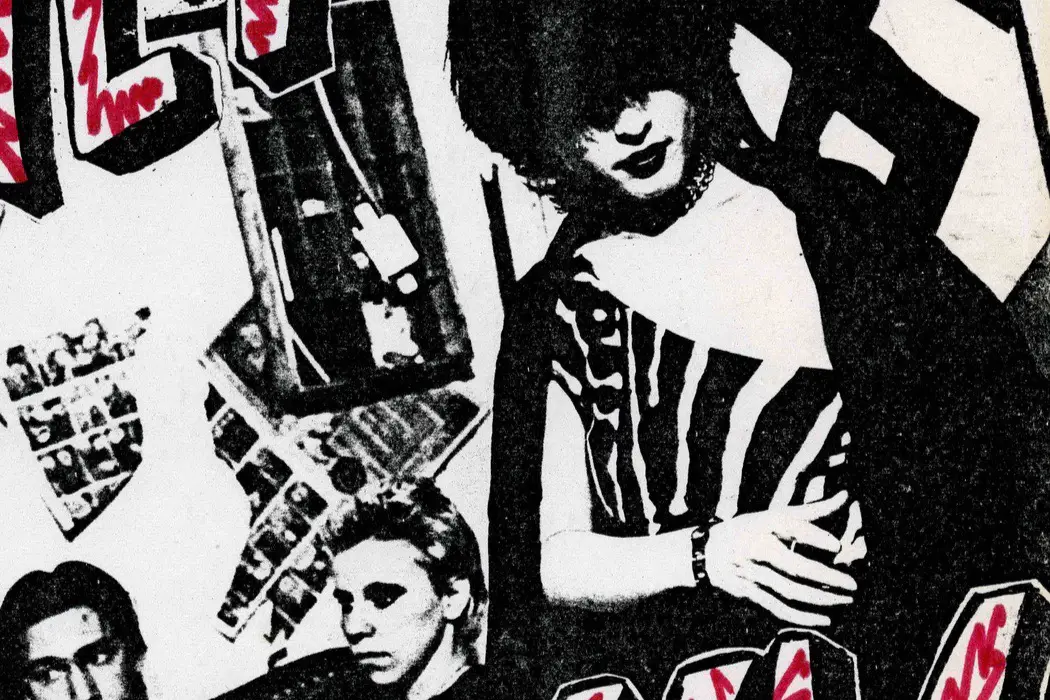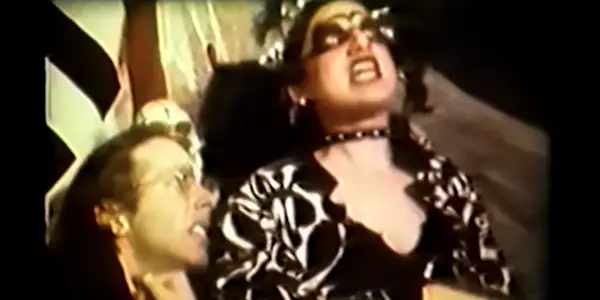Anarchic Cinema: Nick Zedd’s THEY EAT SCUM

Matthew Roe is a director, writer, producer, film critic, theorist…
Film doesn’t mature at a standard rate, meaning that it is never in a constant state of evolution, however gradual. If this were the case, we would be far more advanced in technique and scope than we are today. However, this isn’t to say that filmmaking naturally resides in an equilibrium waiting to being upset. Imagine a three-act heartbeat, advancing and retreating naturally and cyclically.
Creative collectives are rising actions, furthering the state of film in many directions. Public policy is the falling action, as the culture (even the founding artists) withdraws from this advance, inhibiting it. And there are moments of stagnation, where no movement in either direction is had. This repeats indefinitely and depending on personal biases, our positions will flip to where disavowing a movement is the right course of action.
New Hollywood Movement
In the late 1970s, the New Hollywood Movement was ending as the Cold War reached its peak. Costs of making movies continued to climb as compensation stagnated and working conditions declined (culminating in five major unionized strikes throughout the 1980s). Drive-in movie theaters were reducing rapidly, the main audience on which New Hollywood had survived.
With the financially crushing failures of Michael Cimino’s Heaven’s Gate (1980) and Francis Ford Coppola’s One from the Heart (1981), major studio support of maverick directors with dodgy temperaments would grind to a halt. Via the overwhelming success of Steven Spielberg’s Jaws (1975) and George Lucas’ Star Wars (1977) – the next heartbeat for the studios would be the blockbuster era.

In the vacuum left by New Hollywood’s decay, fringe filmmakers like Jonas Mekas, the Kuchar Brothers, and John Waters came to dominate the scene with successful, form-splitting films made with equal reverence and mockery. This explosion of avant-garde underground art inspired No Wave (1976–1985) directors such as Amos Poe, Vincent Gallo and Jim Jarmusch.
Though we will come to talk about many of these individuals, I posit that the Cinema of Transgression (1979-1993), a collective of angry punks with filched cameras and off-tune instruments emerging from No Wave, are not only essential to artistic maturity in film, but a core inspiration for anarchic cinema.
Who The Hell Is Nick Zedd?
Nick Zedd is a New York no-budget filmmaker defined by his excessive use of shock elements crashing against dark humor. During his tenure running The Underground Film Bulletin (a publication for which he was the creator, sole writer and illustrator between 1984-1990), Zedd would publish a manifesto in 1985 titled “Cinema of Transgression”. In it, he likened filmmaking produced by studios and film schools to an “easy approach to cinematic creativity” that “legitimize every mindless manifestation of sloppy movie making undertaken by a generation of misled film students, the dreary media arts centers and geriatric cinema critics”.
Though he was not the first of this kind of reactive filmmaker coming out of No Wave Cinema, he was the one who pushed it to be far more ugly, aggressive and driven to dismantle the status quo by any means.

I do not believe (nor can I be dissuaded from thinking so) that Nick Zedd is a typically defined “good filmmaker”. The majority of his work I find to be (in a way) subterranean comparatively to even the bottom of the moviemaking barrel; such as his long-ran Electra Elf television series which tempts the idea that Zedd inspired the path taken by B-Movie King David De Coteau for his 1313 film series (which I have covered extensively on my video podcast Sh*tFlix).
However, this does not automatically denote him as an incorrigibly “bad filmmaker”. But it is a solid explanation for why he is completely overshadowed by the director Richard Kern, whose films Thrust in Me (1985) and Fingered (1986) would eventually come to define transgressive cinema (which we will come to discuss).
So What Is They Eat Scum?
Zedd’s debut film They Eat Scum (1979) can be considered to be one of his sleaziest and schlockiest works, but I will challenge that notion. Its intent, content and execution, and the audience reception, is comparable to John Waters’ Pink Flamingos (1972) and E. Elias Merhige’s Begotten (1990), as one of the best independent exercises in endurance while shredding common film language. Zedd would make this five years before his idea of transgressive cinema would even emerge on the scene.

They Eat Scum is rough, dirty and trashy, shot on a borrowed Super 8 camera and produced with loaned funds from Zedd’s friend (and star) Donna Death and his parents. Non-actors in absurdist scenarios involving cannibalism, kidnapping and zombies are set to a soundtrack of live local punk bands and poached pop singles (a climactic fight scene is scored with “YMCA” by the Village People). The plot meanders throughout its hodgepodge of giant tick fever dreams while dastardly villains and teenagers soapbox hedonism, revenge, amorality, and bumper sticker philosophy.
Produced through borrowing, stealing and hustling, They Eat Scum is the arrival of undiluted cinematic punk rock. Pink Flamingos is cheap – this is cheaper (no attention to lighting, depth of field or discernable diegetic sound). Zedd was highly critical of the 1970s and of that decade’s audience; with his subversive nature digging so far under their skin that screenings of They Eat Scum led to several small riots.
His characters hock on the audience and smash anything they snatch up (the film even captures live concerts where bands do just that), for nothing is sacred and everything breaks. Sacrilegious imagery and aggressive nudity are common throughout the crazy shenanigans of the cast, with no higher purpose than to just piss off as many people as possible.
The Legacy
This movie was subsequently banned in a couple countries, yet proved to many who hadn’t caught on by that point: you can make a movie for nothing. That isn’t to say such ballsy “limited funds” filmmakers didn’t exist beforehand, as we’ve already mentioned a slew. Zedd proved that anyone can make a film with the only goal to shock the system, slap it around and kick it while it’s down, and still essentially say nothing. It’s filmic nihilism with an ardent demand to lack any defined structure and still be called a narrative.

As Lydia Lunch put it in the fascinating Celine Danhier documentary Blank City (2010), the movies of No Wave Cinema are classified and measured by what they are not; creations that filmmakers, critics and theorist could not (or would not) classify. They Eat Scum is a film so conflicted in its own existence that audiences hardly know what to make of any aspect of it to this very day – and that’s Anarchic Cinema.
Do you think this film can be considered Anarchic Cinema? Please share your thoughts in the comments below!
Does content like this matter to you?
Become a Member and support film journalism. Unlock access to all of Film Inquiry`s great articles. Join a community of like-minded readers who are passionate about cinema - get access to our private members Network, give back to independent filmmakers, and more.
Matthew Roe is a director, writer, producer, film critic, theorist and historian, with over 12 years experience producing film, video, television, and online content. He currently writes DVD/Blu-ray reviews for Under the Radar Magazine, movie reviews for Film Threat, and contributes features to the Anime News Network. He has won two Vollie Television Awards, an Honorable Mention at the LA Movie Awards, and is a Cult Critic Award Finalist. Matthew is a member of the Political Film Society and the Large Association of Movie Blogs.













